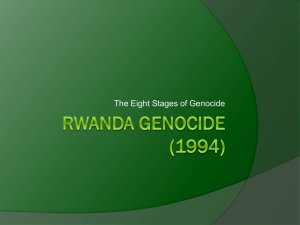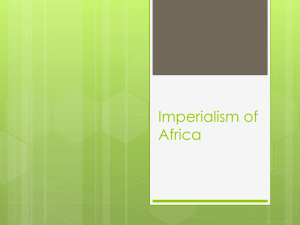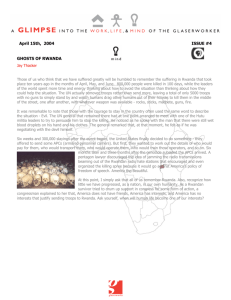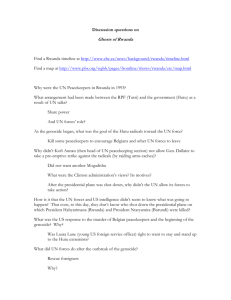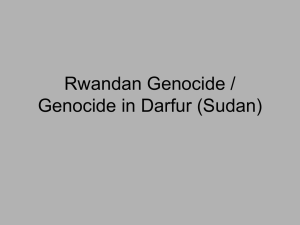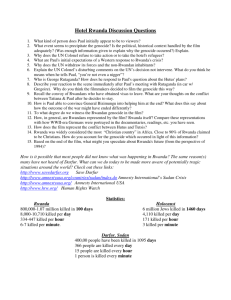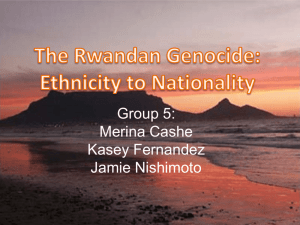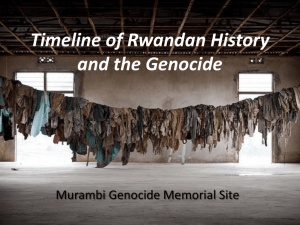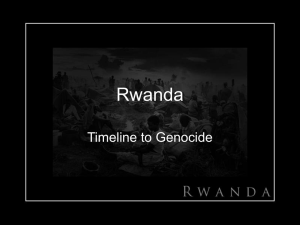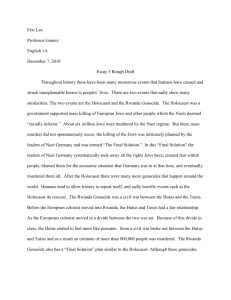Hotel Rwanda Questions
advertisement
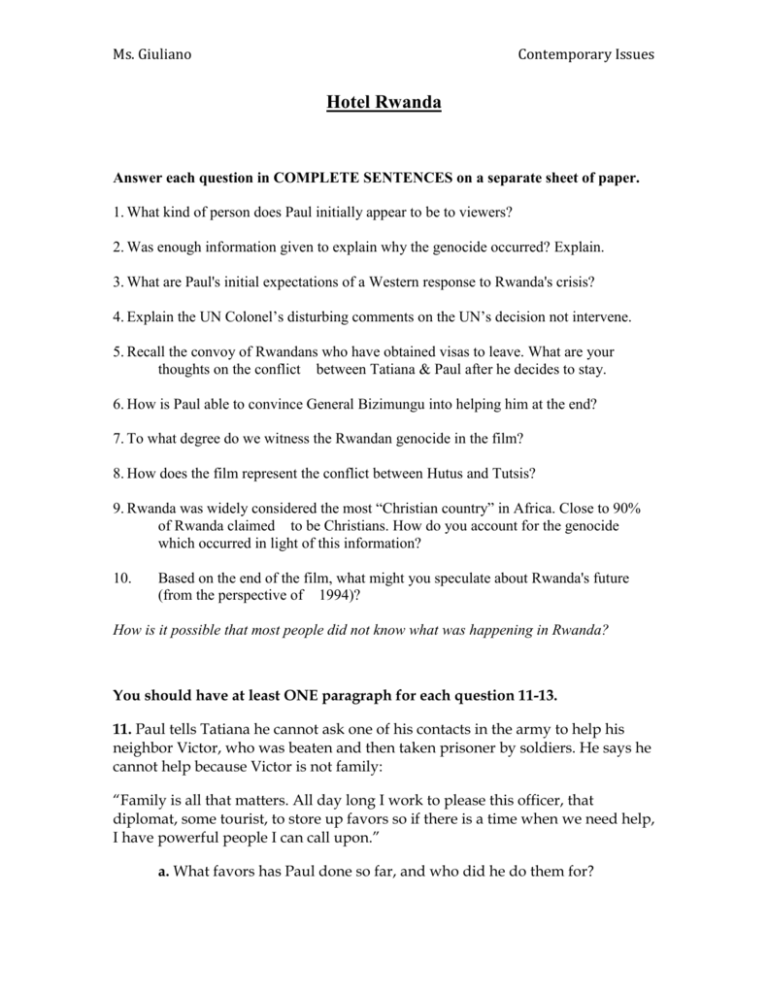
Ms. Giuliano Contemporary Issues Hotel Rwanda Answer each question in COMPLETE SENTENCES on a separate sheet of paper. 1. What kind of person does Paul initially appear to be to viewers? 2. Was enough information given to explain why the genocide occurred? Explain. 3. What are Paul's initial expectations of a Western response to Rwanda's crisis? 4. Explain the UN Colonel’s disturbing comments on the UN’s decision not intervene. 5. Recall the convoy of Rwandans who have obtained visas to leave. What are your thoughts on the conflict between Tatiana & Paul after he decides to stay. 6. How is Paul able to convince General Bizimungu into helping him at the end? 7. To what degree do we witness the Rwandan genocide in the film? 8. How does the film represent the conflict between Hutus and Tutsis? 9. Rwanda was widely considered the most “Christian country” in Africa. Close to 90% of Rwanda claimed to be Christians. How do you account for the genocide which occurred in light of this information? 10. Based on the end of the film, what might you speculate about Rwanda's future (from the perspective of 1994)? How is it possible that most people did not know what was happening in Rwanda? You should have at least ONE paragraph for each question 11-13. 11. Paul tells Tatiana he cannot ask one of his contacts in the army to help his neighbor Victor, who was beaten and then taken prisoner by soldiers. He says he cannot help because Victor is not family: “Family is all that matters. All day long I work to please this officer, that diplomat, some tourist, to store up favors so if there is a time when we need help, I have powerful people I can call upon.” a. What favors has Paul done so far, and who did he do them for? Ms. Giuliano Contemporary Issues b. Do you agree that “family is all that matters” in dangerous situations? 12. The Rwandan journalist explained the history of Tutsi-Hutu relations: “According to the Belgian colonists, the Tutsis are taller and more elegant. It was the Belgians that created the division. They picked people, those with thinner noses, lighter skin. They used to measure the width of people’s noses. The Belgians used the Tutsis to run the country. Then when they left, they left the power to the Hutus, and of course the Hutus took revenge on the elite Tutsis for years of repression.” a. If you were Hutu, would you be angry with the Belgians who made physical differences important? b. What if you were a Tutsi? Would you believe the Belgians and treat the Hutu like they were not as good as you? c. Can you think of any other examples of countries where ethnic or religious groups were treated differently by colonial powers? 13. Paul thanks Jack for risking his life and filming the killing. Paul hopes Jack’s bravery will bring help. Jack replies: “If people see this footage, they’ll say ‘Oh, my God, that’s horrible,’ and then they’ll go on eating their dinners.” a. Was Jack right? b. If Jack was right, would you try to get people to help? How? Statistics: Rwanda 500,000-1.5 million killed in 100 days 8,000-10,710 killed per day 334-447 killed per hour 6-7 killed per minute. Statistics: Holocaust 6 million Jews killed in 1460 days 4,110 killed per day 171 killed per hour 3 killed per minute
